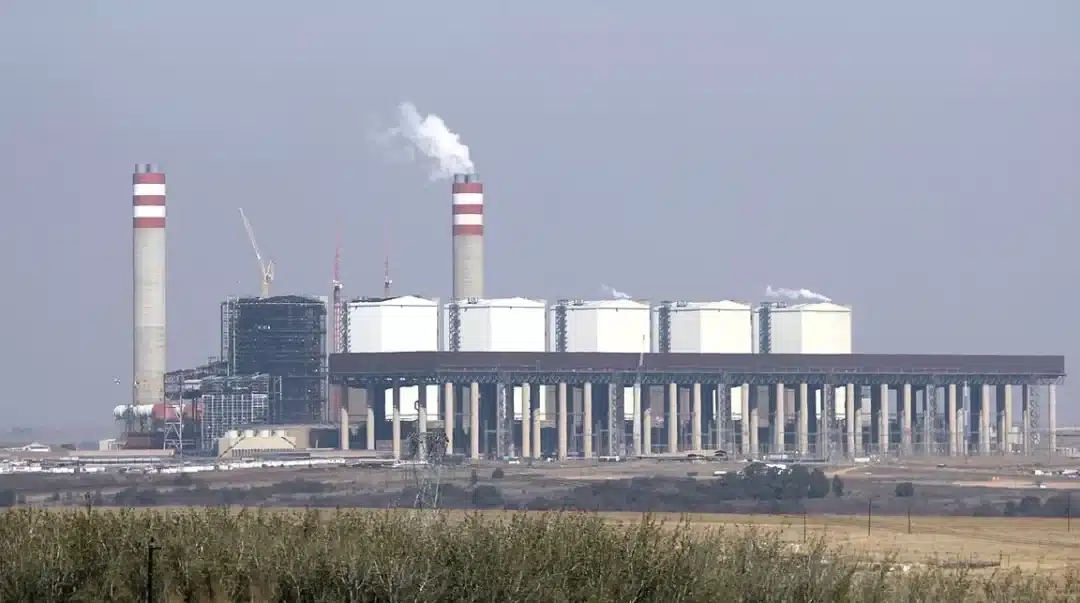South Africa has struggled to keep the lights on for more than a decade. The country’s aging coal power plants have fallen into disrepair. Resources set aside for fixing the infrastructure have been squandered.
The national electricity utility Eskom is rife with corruption and mismanagement stemming from the tenure of former president Jacob Zuma. The result is rolling blackouts, known locally as load shedding, that have crippled the economy.
Eskom officials have recently warned of even higher blackouts ahead of winter arriving in June. Increased power outages could see South Africans without power for up to 16 hours in a 32-hour cycle.
This is a sad story of isolated government mismanagement. But it also has international dimensions that climate and governance policymakers worldwide should follow closely.
According to many analysts and politicians in South Africa, the power crisis is a self-inflicted wound. Under Zuma, Eskom was turned into a virtual piggybank for corrupt officials who would drain the utility’s coffers of taxpayer money earmarked for vital repairs. In recent years, power plants have been the scene of diesel theft as Eskom has used diesel generators as a backup for the aging coal plants.
The result is historic power outages. Eskom interim chief executive officer Calib Cassim has said the power utility had about 47,500 megawatts of installed capacity but could only use 26,500MW because of plant breakdowns. Thus Eskom must resort to various levels of power outages known as stages to make up the deficit.
The country is bracing for the record high level of “Stage 8” power outages, severely impacting businesses and people’s daily lives.
“It is going to be quite hard for businesses to survive when we go beyond Stage 6. We already see that at Stage 6 load-shedding the impacts are quite dire – prolonged periods at Stage 8 will be devastating,” Happy Khambule, Business Unity SA environment, energy and climate manager, told Business Day.
Woes persist despite enviable energy reserves
Ironically, South Africa has sizable deposits of coal. Aside from the horrific environmental toll of burning coal, South Africa could have some form of energy independence if it could weed out its corruption and mismanagement problems.
In addition to coal and other mineral deposits, South Africa has bountiful wind and solar energy reservoirs. The amount of wind energy just off the coast of Cape Town is virtually limitless given the power and regularity of storms in the South Atlantic. The problem is building the infrastructure required to harness the power.
Infrastructure problems can be resolved with capital, but South Africa faces systemic legislative and political barriers to unlocking its renewable energy reserves.
The City of Cape Town’s ongoing battle with the national government is emblematic of the challenges facing South Africa and other countries. National legislation in South Africa is outdated and designed to protect state-owned entities such as Eskom.
Until last year, it was against the law for private producers to generate more than 100MW of electricity. The result was a virtually non-existent renewable energy sector at scale. President Cyril Ramaphosa has since rolled back these regressive laws, but renewable energy has struggled to get off the ground regarding large-scale projects.
That could soon change, as Cape Town recently announced a major solar and battery storage project to generate more than 60MW and shield the city from at least one load-shedding stage. The city is also exploring ways to purchase power from small producers and households using solar energy. This model has worked in places like California but has never been tested in South Africa because of legislative blocks.
While Cape Town is securing renewable energy sources, the South African government is debating the use of offshore power ships from Turkey to ease the power crisis. Even this temporary measure to give the country much-needed power while considering a long-term solution has been mired in mismanagement and chaos.
South Africa’s energy crisis is one of the clearest examples of the hostile role government can play in the renewable energy transition. Put simply, the national government worries that it will lose its monopoly on energy production if it allows businesses and individuals to embrace renewables fully.
This dynamic is bound to repeat in countries worldwide as renewable-energy production costs continue to fall, and more people can outfit themselves with solar panels or wind power.
With the COP28 climate conference set to kick off in Dubai this November, the details of South Africa’s energy crisis should be top of mind for all those involved and concerned about an equitable renewable-energy future.
Not only should foreign governments and companies look to help South Africa in its quest for large-scale renewable energy (there is ample business opportunity, after all), but policymakers should listen closely to the internal debates about the shift to renewables.
Even countries with ample natural resources face political hurdles and government mismanagement in delivering power to businesses and individuals. Without power, delicate social relations are at risk in many societies worldwide.



